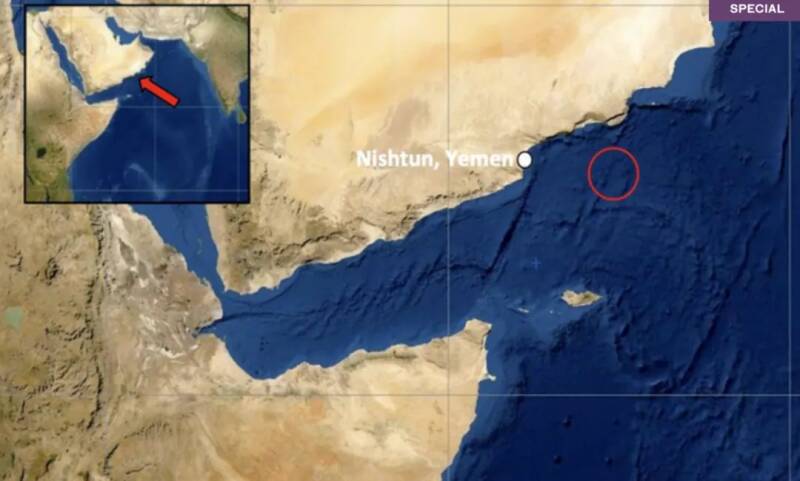Three ships were attacked in the Red Sea in one day, MSC announced suspension of services in Djibouti
Recently, Yemen's Houthi armed forces launched another armed attack, carrying out three attacks in one day, causing tensions in the Red Sea region to continue to rise.
According to the latest news reports, Yemen's Houthi armed forces said on July 12 that the organization used missiles and drones to attack the "Chrysalis" twice in the Red Sea and the Strait of Mande. It was an oil tanker flying the Libya flag. In addition, on July 9 local time, a spokesman for the Houthi armed forces in Yemen issued a statement saying that they attacked the ships "Maersk Sentosa" and "Marthopolis" on the Arabian Sea and the ship "MSC Patnaree" on the Gulf of Aden that day.

It is understood that the "Maersk Sentosa" is owned by Maersk, the world's largest container carrier company, while the "MSC Patnaree" is a ship owned by MSC, another shipping and logistics giant.
Maersk confirmed to the media that the captain of its "Maersk Sentosa" ship reported that during the voyage, an explosion occurred near the ship. However, the vessel was slightly damaged and is currently sailing. In addition, MSC said that many of its ships were attacked because they were considered by the Houthi armed forces to be "Israeli ships." At the time of the incident, the ship was sailing from the port of Berbera in Somalia to the port of Colombo in Sri Lanka.

Due to the ongoing crisis in the Red Sea, there have been at least 15 missile attacks by Houthi on foreign ships. Many large ships have suffered minor and moderate damage, deaths of sailors, and the sinking of small ships.
This situation has seriously affected the port of Djibouti. Djibouti Port is the only port for exporting all Ethiopian goods, and the port is mainly dominated by MSC Company, which currently accounts for 80% of the port's transportation capacity. However, MSC recently announced that it will completely suspend Bujiti port services.
This time MSC's suspension of Djibouti port routes will have a serious impact on Ethiopia's goods exports, especially the country's coffee exports, which account for Ethiopia's exports. As a result, an international coffee trader reported that customers had ordered coffee shipments, but there was currently no specific delivery date. Even if the company could pay more expensive shipping costs, the delivery time could not be guaranteed.
According to statistics, the Yemeni Houthi armed forces launched the most attacks on merchant ships in the Red Sea and Gulf of Aden regions in June since 2024. This is the latest attack since early July, and the incident occurred outside the traditional threat area of the Houthi armed forces.
Earlier, Ethiopian coffee exports encountered many problems. The most important one was that due to the impact of the Red Sea crisis, shipping companies had to choose to detour to the Horn of Africa. The number of ships in the port of Djibouti decreased, resulting in the accumulation of coffee cargo in the port.
Judging from the current situation, the Houthi armed forces have expanded the scope of their strikes and escalated their threats, which may once again push up shipping prices and increase shipping times. Moreover, for coffee that relies on shipping trade, the increase in shipping prices also indirectly drives up coffee trading prices.
Important Notice :
前街咖啡 FrontStreet Coffee has moved to new addredd:
FrontStreet Coffee Address: 315,Donghua East Road,GuangZhou
Tel:020 38364473
- Prev

Ethiopia's 2024COE results released Sidamo wins a total victory
Recently, Ethiopia held the 2024 Excellence Cup competition, and the results of the competition have now been announced. Among the results of this time, sun treatment won a total victory, and among many Ethiopian producing areas, Sidamo sidama performed the most. In fact, as early as 2020, Ethiopia held the first C.
- Next

Merchants save themselves! Attending an outdoor coffee festival and almost getting sunstroke!
▲ Click to pay attention| Daily Boutique Coffee Culture Magazine Coffee Workshop This weekend, Fuzhou held an outdoor coffee market event, with hundreds of coffee brands participating, attracting a group of enthusiasts to check in and play. It is reported that the local temperature in Fuzhou has reached more than 30 degrees Celsius in the past two days, and the highest temperature at noon even reaches
Related
- What grade does Jamaica Blue Mountain No. 1 coffee belong to and how to drink it better? What is the highest grade of Blue Mountain coffee for coffee aristocrats?
- What are the flavor characteristics of the world-famous coffee Blue Mountain No. 1 Golden Mantelin? What are the characteristics of deep-roasted bitter coffee?
- Can I make coffee a second time in an Italian hand-brewed mocha pot? Why can't coffee be brewed several times like tea leaves?
- Hand-brewed coffee flows with a knife and a tornado. How to brew it? What is the proportion of grinding water and water temperature divided into?
- What is the difference between Indonesian Sumatra Mantinin coffee and gold Mantinin? How to distinguish between real and fake golden Mantelin coffee?
- What does bypass mean in coffee? Why can hand-brewed coffee and water make it better?
- Unexpected! Ruixing Telunsu lattes use a smoothie machine to foam milk?!
- % Arabia's first store in Henan opens into the village?! Netizen: Thought it was P's
- Does an authentic standard mocha coffee recipe use chocolate sauce or powder? Mocha Latte/Dirty Coffee/Salty Mocha Coffee Recipe Share!
- What is the difference between Vietnam egg coffee and Norway egg coffee? Hand-brewed single product coffee filter paper filter cloth filter flat solution!

